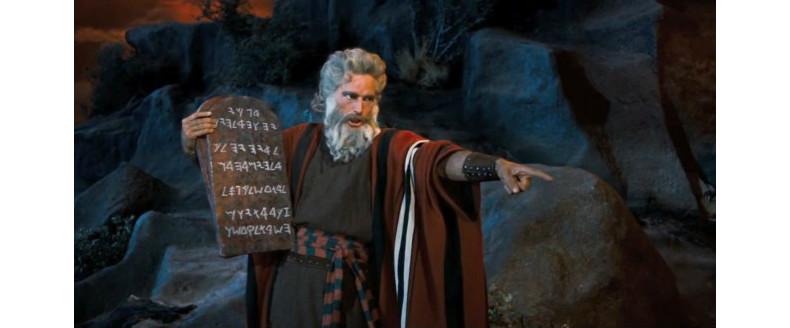New contributor but longtime friend-of-Epolitics Luis E. Hestres, PhD., is an assistant professor of communication at the University of Texas at San Antonio. He has worked as a digital strategist for several progressive nonprofits, including Families USA and the 1Sky climate campaign.
Digital politics has come a long way since I landed a job as an “e-advocacy coordinator” way back in 2004. At the time, I didn’t even think of myself as a digital politics professional: I just had a job with a DC nonprofit that combined politics and the Internet — and took way too long to explain at parties or happy hours.
That’s probably the biggest change I’ve seen in the last ten years. Slowly but surely, digital politics has become a stand-alone political profession.
If you can get your foot in the door, you’ll find a whole slew of party, nonprofit, corporate, and government jobs waiting to be filled. You’ll also find a community of experienced professionals, a well-established set of best practices and a steady diet of conferences and networking events to attend. In the New Organizing Institute, we even have a digital politics grad school of sorts– — not not to mention a career services firm.
These are all signs of a maturing political profession. So what should be the next sign? Here’s one idea: a code of ethics for digital politics.
When I was an online organizer, I hardly ever had time to think through the long-term consequences of the emails I wrote, the A/B tests I ran, or the petitions I posted online. But there are ethical questions worth thinking about any time we use technology to engage people in politics. Here are some examples:
A/B testing
This summer, Facebook got a lot negative press when it revealed its massive News Feed experiment that tested the concept of emotional contagion through social media — without getting consent from its subjects. This was probably the first time most people heard of A/B testing, but digital strategists know it very well. Running modern digital campaigns would be almost impossible without it.
A/B testing raises lots of interesting ethical questions. How do the messages that digital strategists test on supporters affect them, beyond how they respond? How much should strategists take that into account when composing messages and tests? Is the message that gets the highest level of engagement always the “right” message, from an ethical standpoint? One positive aspect of the Facebook experiment is that it sparked a conversation about the ethics of A/B testing, but that conversation has just begun.
The actual impact of online tactics
Low-threshold actions like petitions can be a great way to grow supporter lists, which can lead to higher levels of engagement and larger donor pools. But digital campaigns sometimes create petitions that suggest a concrete result or impact, when in fact they’re only meant to grow supporter lists.
Here are two examples: This DCCC petition urges Republicans to denounce Rush Limbaugh for his comments about then-Georgetown law student Sandra Fluke, while this RNC petition calls for the abolishment of the IRS. Realistically, should signers have expected Republicans to stand up to Rush, or the IRS to be abolished any time soon? Almost certainly not, but we have to assume many did, or they wouldn’t have signed. [Ed. note: this is sometimes framed as the “theory of change” question. I.e., does the action embody a sincere theory of change, a realistic route to making something happen in the real world?]
This practice also raises some ethical dilemmas. Should signers expect every petition to have the impact they imply? Do digital strategists owe their supporters more transparency about the impact a petition can have? Should petitions with no chance to have an impact be deployed at all? These questions are important because, given enough time, petitions that lead to nothing could breed cynicism and dampen engagement in politics.
Political polarization
By now you’re probably sick and tired of hearing about political polarization. Of course our politics is polarized — as a wise man said, “politics ain’t beanbag”. Some of the most effective messages, the ones that generate the most engagement and raise the most cash, are also the most polarizing. As a communication tactic, calling the other side ‘extremists’ and ‘radicals,’ or painting every political or legislative campaign as a struggle to “take our country back” simply works.
But in the end, contributing to this polarization may be self-defeating — especially for progressives. Our political system is fundamentally conservative and requires compromise, so anything that hardens attitudes is bound to hurt progressive causes. Polarization also makes the country harder to govern, which should be a concern for everyone, regardless of ideology. Should digital strategists rely on tried-and-true polarizing messages, despite their potential long-term effects on our political system? Is there any obligation to take polarization into account when crafting messages for digital campaigns?
These are just some areas that are ripe for ethical exploration when it comes to digital campaigns. As the ranks of digital strategists continue to grow, their ethical decisions will become more important over time. It may be to think about a comprehensive code of ethics that addresses these and many other related questions. Ideally, it would be a code that digital strategists across the ideological spectrum could embrace — that alone would help narrow our growing political divides. I certainly could’ve used such a code when I was an online organizer, and I suspect many would appreciate it today.

